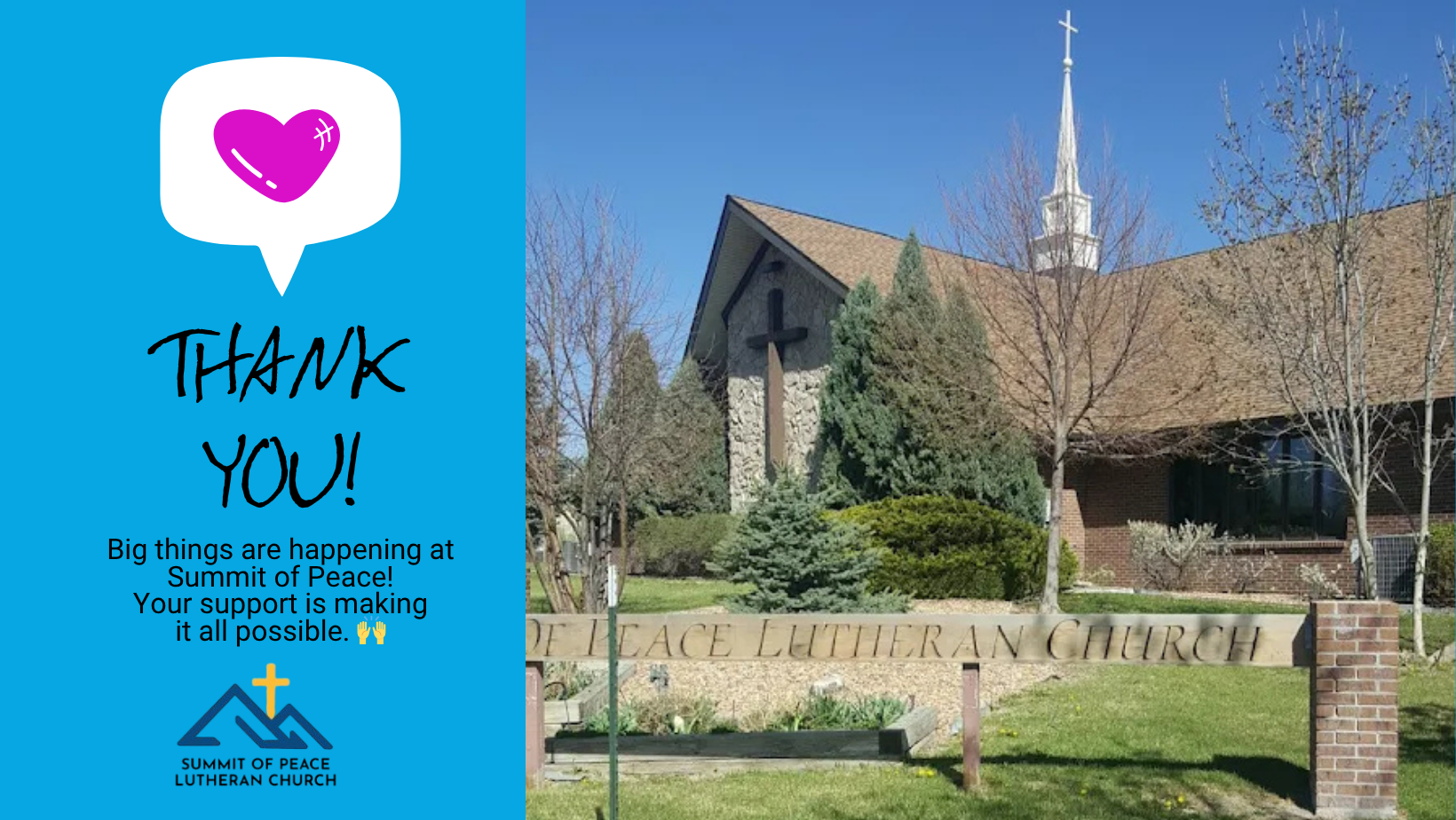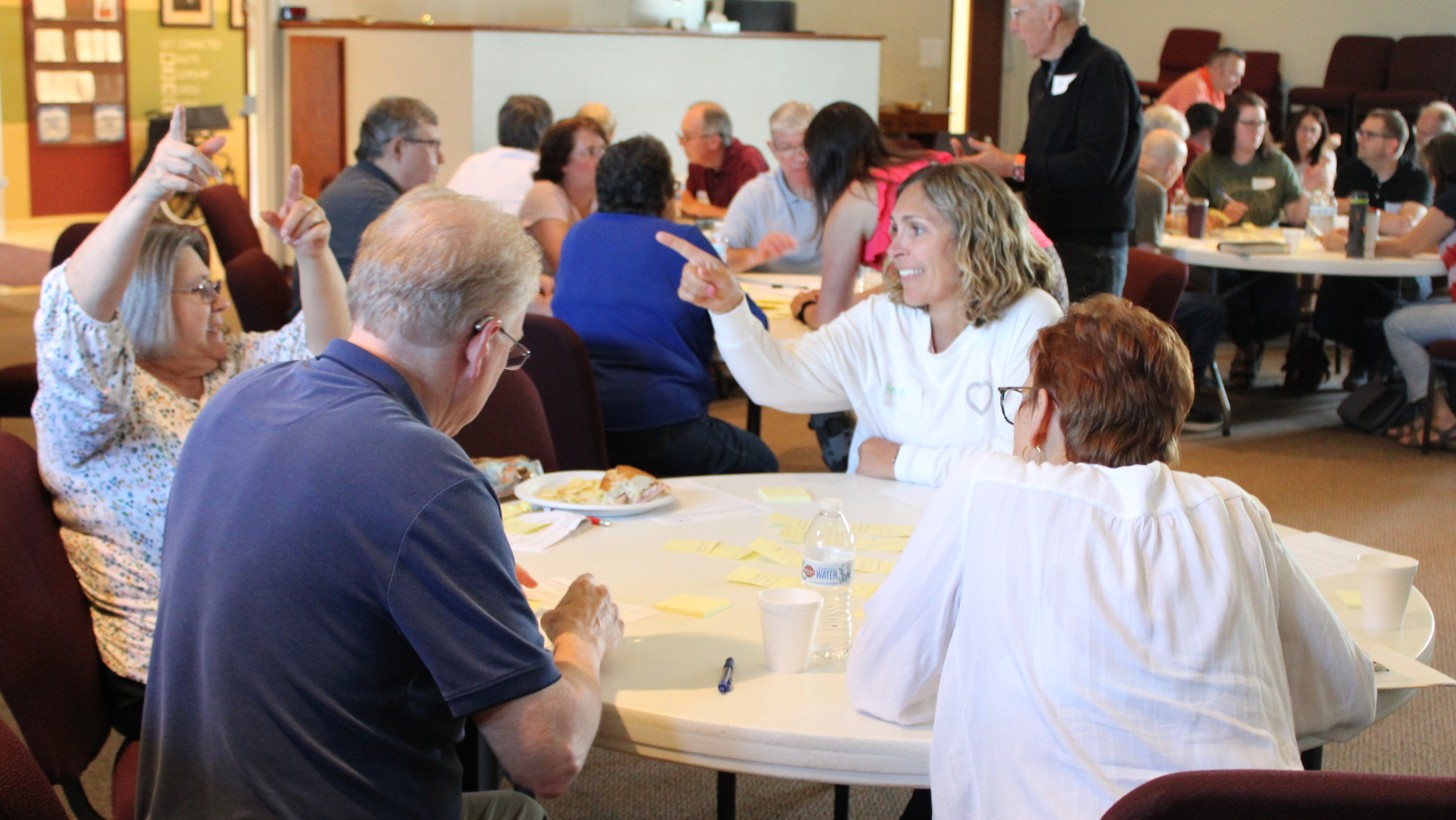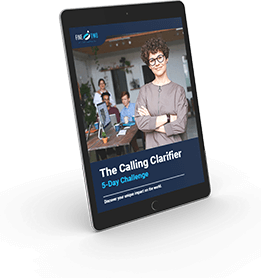When a church decided to expand their ministry and plant a new church in a nearby town, they relied on FiveTwo coaching to help.
Pastor Rob Bailey was called by Gloria Dei Lutheran Church in Houston, Texas to plant in a town in the Clear Lake region called League City. Not too long before the team gathered to strategize the plant, the town endured devastation at the hands of Hurricane Harvey, which became a key driver for the faith-based venture’s strategy.
Keep reading to learn more about their creative approach to identifying their vision and fulfilling their mission.
3 Innovative Ways a Church Plant Shares Their Unique Value Proposition
1. They researched by throwing a party.
Right away, Rob and his team identified a local neighborhood where 99% of its homes were completely flooded by Hurricane Harvey. There were needs to be met, but identifying the most effective way of meeting those needs was yet to be determined. One thing they knew for sure — talking to these community members would help clarify their mission, vision, and strategy.
KNOW YOUR CUSTOMER
In the first ACTIVATION module of the FiveTwo coaching experience, groups are charged with the task of identifying their customer. Once teams are clear on WHO they will serve, they’re one major step closer to determining HOW to best help them.
In the case of Rob’s church planting team, they could have gone door-to-door to learn about their customers, but instead, they turned into a party! The team hosted a free event for neighborhood families with the intention of connecting with each family to learn how they could best be served and helped.
The party included bounce houses for kids, Chick-fil-A lunches for all, and a comfy outdoor space where residents could sit with the team and share their stores.
Rob calls the experience “amazing” and reported that 35 families shared contact information which made it possible for the church to stay in contact.
A great start: 3 Steps To Launch A Faith-Based Business That Reaches Your Community
2. They determined a very tangible value proposition.
During this stage of their venture, the team had resources to offer but few connections. The challenge was connecting the resources to the right people and locations.
In the ACTIVATION: BUILD stage of the FiveTwo Business Canvas, teams consider their value by starting with the question:
What problem will your venture solve for the target community?
In Rob’s case, he ultimately wanted to meet the spiritual needs of the surrounding community by planting a church. But first, he had the opportunity to leverage resources to meet the tangible, felt needs. For example, helping families who were still in need of furniture and basic home repair, which was just the kind of thing the Trinity Lutheran team could provide.
Soon after the event, the teams fearlessly served their community. They delivered sheetrock, furniture, and other household needs that displaced families needed to start the process of rebuilding a home.
3. They offered blessings that multiplied their impact.
In addition to offering a tangible value proposition, the team was able to bring something most other non-profits weren’t going to offer: a blessing.
Rob’s group has led house blessings for rebuilt homes as a way to give God the glory. Being invited into the homes, rather than just on the porch or yard, has led to deeper conversations about God’s love, forgiveness, and grace. One grandfather said:
“I’ve been praying for my daughter and grandkids to go to church, and today the church came to them.”
Harnessing their unique value proposition in innovative ways has caused everyone involved to experience open doors and open hearts.
Deliver hope: How Mixing Faith and Work Can Bring Hope To Your Customers
LAUNCH YOUR VENTURE UTILIZING PROVEN METHODS
During coaching, teams are introduced to one of the most effective tools for launching their faith-based venture — advice from like-minded startups who’ve gone before.
Alumni of FiveTwo coaching and courses are happy to share their stories of success and struggle. That was certainly a help to Rob and his team, who now advise other teams to connect with veterans of FiveTwo:
“I also recommend consistently reaching out to others who have been a part of the process for encouragement, accountability, and guidance.”
Rob also reports one best practice that was foundational to his venture’s success, and one you won’t find in most business manuals: Pray first.
We agree. The motivation for your faith-based venture is to use entrepreneurship to create eternal impact in communities and a powerful first step is prayer.




